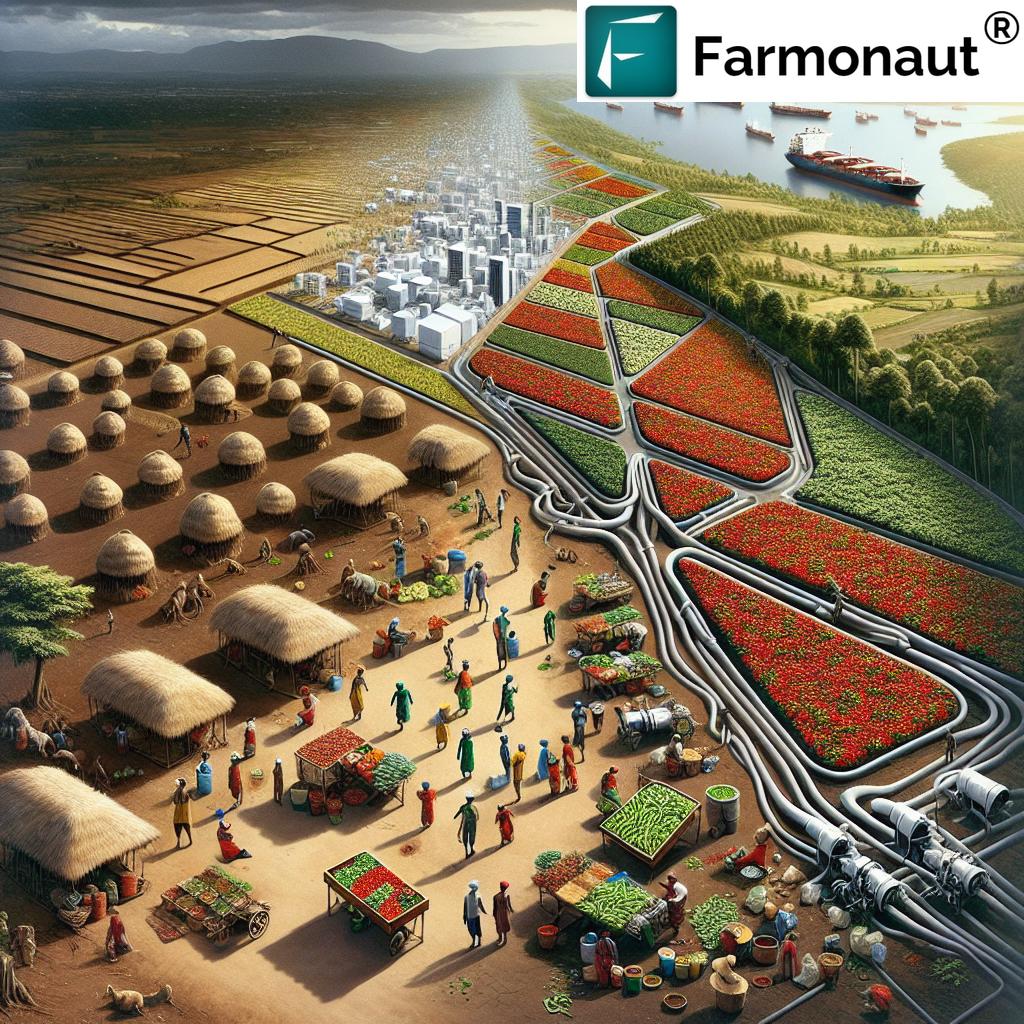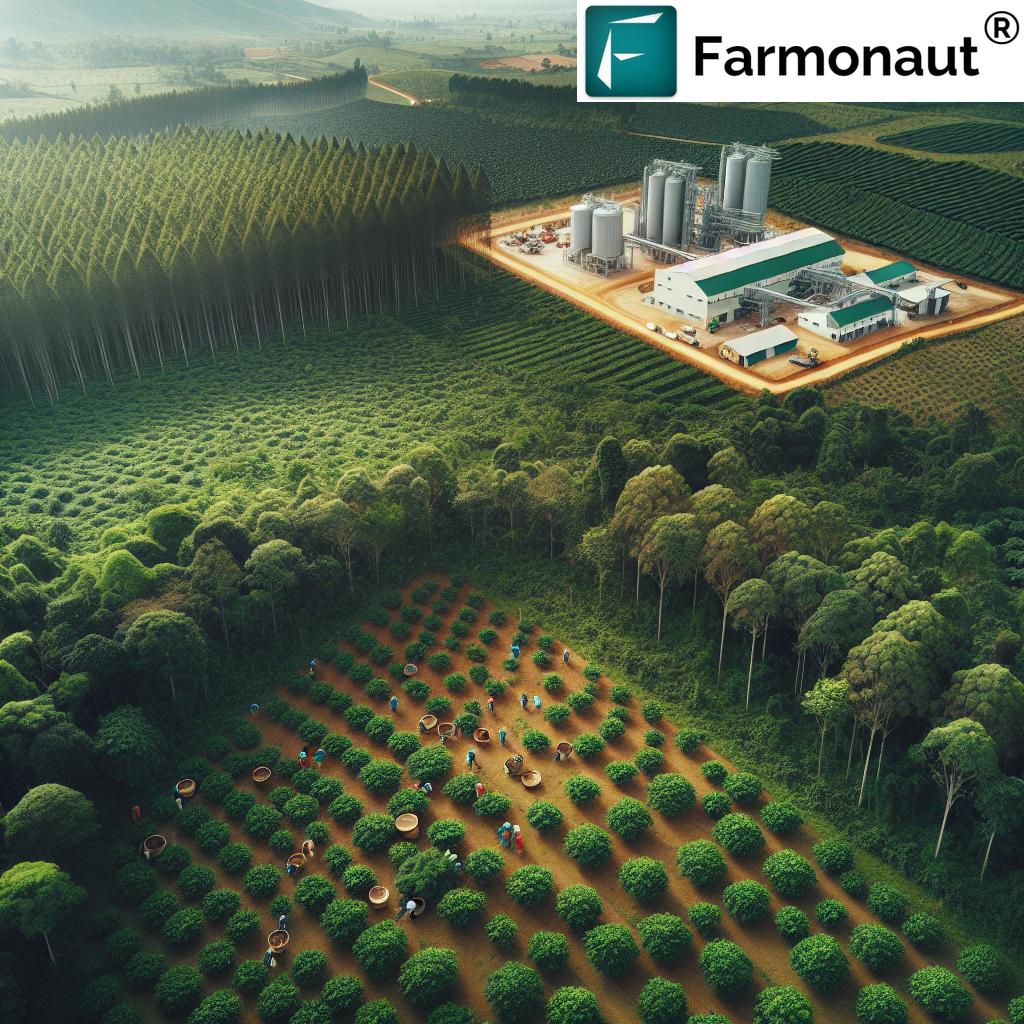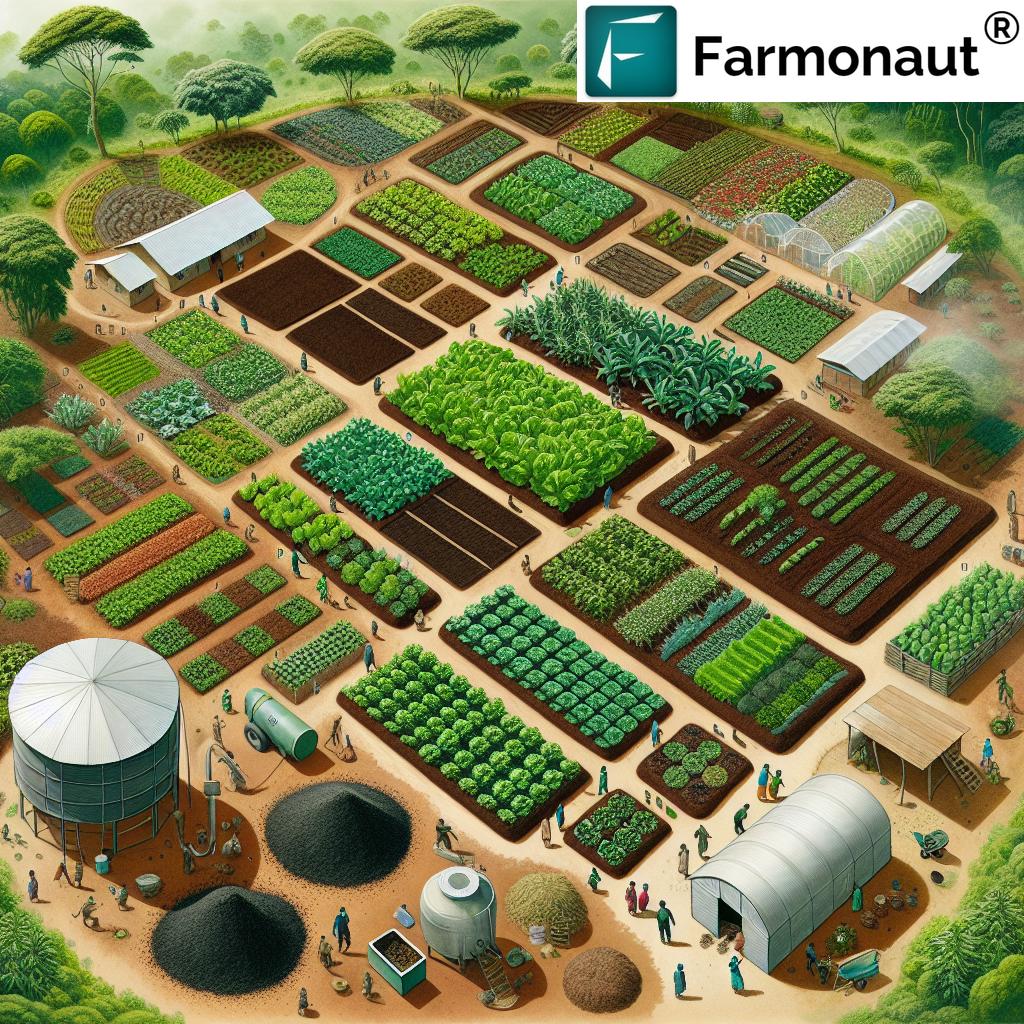Sustainable Chili Farming in Rwanda: How Agritech is Boosting Agricultural Exports and Transforming Rural Communities

“Rwanda’s chili exports to China have increased by over 300% in the past five years, boosting rural economies.”
In the heart of East Africa, a remarkable transformation is taking place. Rwanda, a country once synonymous with tragedy, is now emerging as a beacon of hope and innovation in the agricultural sector. At the forefront of this change is the inspiring story of sustainable chili farming, which is not only boosting agricultural exports but also revolutionizing rural communities. In this comprehensive exploration, we’ll delve into how agritech solutions for smallholder farmers are driving African agricultural development and creating a ripple effect of positive change across the nation.
The Rise of Chili Farming in Rwanda: A Journey of Transformation
The story of chili farming in Rwanda is one of resilience, innovation, and sustainable growth. What began as small-scale gardening has evolved into a vital economic sector, contributing significantly to the country’s GDP and providing livelihoods for thousands of Rwandans. This transformation has been driven by a combination of factors, including:
- Adoption of sustainable farming practices
- Implementation of agritech solutions
- Strategic focus on agricultural exports to China
- Government support and policy initiatives
- Dedication of passionate farmers and agronomists
At the heart of this agricultural revolution is Herman Uwizeyimana, a Rwandan chili farmer with a Ph.D. in ecology. His journey from public service to becoming a key player in the export sector exemplifies the potential for educated professionals to make a significant impact in agriculture.
Agritech Solutions: Empowering Smallholder Farmers
One of the most significant drivers of change in Rwanda’s agricultural landscape has been the adoption of agritech solutions. These innovative technologies are empowering smallholder farmers to optimize their crop yields, manage resources more efficiently, and connect with global markets.
Agritech platforms like Farmonaut are revolutionizing the way farmers approach their work. By providing real-time data on crop health, weather patterns, and market trends, these tools enable farmers to make informed decisions that boost productivity and sustainability. Some key benefits of agritech solutions include:
- Precision farming techniques for optimal resource use
- Early detection of crop diseases and pests
- Improved irrigation management
- Access to real-time market information
- Enhanced traceability for export markets
The impact of these technologies on Rwanda’s chili farming sector has been profound. Farmers are now able to produce higher quality crops more consistently, meeting the stringent standards required for international export.
The China Connection: Expanding into Global Markets
One of the most exciting developments in Rwanda’s agricultural sector has been the expansion into the lucrative Chinese market. This strategic move has opened up new opportunities for Rwandan farmers and has been a key driver of economic growth in rural areas.
Uwizeyimana’s success in establishing trade relationships with Chinese buyers through his company, Fisher Global, is a testament to the potential of this market. The growing demand for Rwandan chili in China has led to:
- Increased export volumes, with Fisher Global alone exporting 200-300 metric tons of dried chili annually
- Higher income for farmers and improved livelihoods in rural communities
- Greater investment in agricultural infrastructure and technology
- Enhanced reputation for Rwandan agricultural products on the global stage
The recent implementation of China’s zero-tariff policy for goods from least developed countries is expected to further boost these exports, creating even more opportunities for Rwandan farmers.
Technical Assistance and Training: The Key to Success
The success of Rwanda’s chili farming sector isn’t just about technology and market access. A crucial component has been the provision of technical assistance and training programs for farmers. Companies like Fisher Global are leading the way in this area, offering:
- Quality seeds and inputs
- Expert agronomic advice
- Training on sustainable farming practices
- Support in implementing new technologies
These programs are essential for ensuring that farmers can effectively implement best practices and maximize the benefits of agritech solutions. By investing in farmer education and support, Rwanda is building a strong foundation for long-term agricultural success.
“Sustainable farming practices in Rwanda have led to a 40% increase in smallholder farmers’ income since adopting agritech solutions.”
The Impact on Rural Communities: Beyond the Farm
The growth of the chili farming sector in Rwanda is having a profound impact that extends far beyond the farms themselves. Rural communities are experiencing a renaissance, with benefits including:
- Job creation, with Fisher Global alone employing 31 permanent staff and around 1,200 casual laborers
- Increased income and improved living standards for farming families
- Development of ancillary businesses and services
- Enhanced local infrastructure to support agricultural activities
- Greater opportunities for youth in agriculture
This holistic transformation is helping to stem rural-urban migration and creating vibrant, sustainable rural economies across Rwanda.
Explore Farmonaut’s API for advanced agricultural data
Sustainable Practices: Balancing Growth and Environmental Stewardship
At the core of Rwanda’s agricultural success is a commitment to sustainable farming practices. Farmers like Uwizeyimana are implementing techniques that not only boost productivity but also protect the environment for future generations. These practices include:
- Crop rotation to maintain soil health
- Integrated pest management to reduce chemical use
- Water conservation techniques
- Use of organic fertilizers
- Agroforestry to promote biodiversity
By adopting these sustainable approaches, Rwandan farmers are ensuring the long-term viability of their operations while also contributing to global efforts to combat climate change.
Challenges and Opportunities: The Road Ahead
While the success of Rwanda’s chili farming sector is undeniable, it’s not without its challenges. Some of the key issues facing farmers and exporters include:
- Training a workforce with limited agricultural knowledge
- Adapting to changing climate conditions
- Meeting the stringent quality standards of international markets
- Scaling up production to meet growing demand
- Navigating complex global trade regulations
However, these challenges also present opportunities for innovation and growth. By continuing to invest in agritech solutions, sustainable practices, and farmer education, Rwanda is well-positioned to overcome these hurdles and further expand its agricultural exports.
Access Farmonaut’s API Developer Docs for integration insights
The Role of Agritech in Shaping Rwanda’s Agricultural Future
As we look to the future of agriculture in Rwanda, it’s clear that agritech will play an increasingly important role. Innovative solutions are helping farmers to:
- Optimize crop yields through precision farming techniques
- Improve resource management and sustainability
- Enhance traceability and quality control for export markets
- Access real-time market data for better decision-making
- Connect with global buyers and expand market reach
Platforms like Farmonaut are at the forefront of this technological revolution, providing farmers with the tools they need to succeed in an increasingly competitive global marketplace.
The Transformative Impact: Before and After Agritech Implementation
| Aspect | Before Agritech | After Agritech |
|---|---|---|
| Average Crop Yield (tons/hectare) | 5-6 | 10-12 |
| Number of Smallholder Farmers Involved | ~500 | ~1,500 |
| Annual Export Volume to China (tons) | 50-100 | 200-300 |
| Sustainable Farming Practices Adopted | 2-3 | 5-7 |
| Job Opportunities Created | ~300 | ~1,200 |
| Farmer Income (% increase) | Baseline | 40-50% increase |
| Environmental Impact | High resource use, soil degradation | Improved soil health, reduced chemical use |
| Technical Training Programs | Limited, informal | Comprehensive, structured programs |
| Market Access | Primarily local markets | Global markets, focus on China |
| Economic Contribution to GDP (%) | ~1-2% | ~4-5% |
Conclusion: A Bright Future for Rwanda’s Agricultural Sector
The story of sustainable chili farming in Rwanda is more than just an agricultural success; it’s a testament to the transformative power of innovation, determination, and sustainable practices. As we’ve seen, the combination of agritech solutions, strategic market expansion, and a focus on farmer empowerment has created a ripple effect of positive change across rural communities.
Looking ahead, the future of Rwanda’s agricultural sector is bright. With continued investment in technology, training, and sustainable practices, we can expect to see:
- Further increases in agricultural exports to China and other global markets
- Greater adoption of agritech solutions among smallholder farmers
- Improved livelihoods and economic stability in rural areas
- Enhanced food security and sustainability at the national level
- Rwanda emerging as a model for agricultural development in Africa
As we celebrate the successes of farmers like Herman Uwizeyimana and companies like Fisher Global, we’re reminded of the incredible potential that lies in combining traditional agricultural knowledge with cutting-edge technology. The journey of Rwanda’s chili farming sector serves as an inspiration not just for other African nations, but for agricultural communities around the world.
By embracing sustainable practices, leveraging agritech solutions, and fostering strong international trade relationships, Rwanda is not just growing chilies – it’s cultivating a brighter, more prosperous future for its people.

FAQs: Sustainable Chili Farming in Rwanda
- Q: What makes Rwanda’s chili farming sustainable?
A: Rwanda’s chili farming is sustainable due to the adoption of practices like crop rotation, integrated pest management, water conservation, and the use of organic fertilizers. These methods protect the environment while ensuring long-term productivity. - Q: How has agritech impacted smallholder farmers in Rwanda?
A: Agritech has empowered smallholder farmers with tools for precision farming, real-time crop monitoring, and market access. This has led to increased yields, better resource management, and higher incomes. - Q: What role does China play in Rwanda’s chili export market?
A: China has become a significant market for Rwandan chili exports, driving demand and encouraging increased production. The zero-tariff policy for least developed countries is expected to further boost this trade relationship. - Q: How are rural communities benefiting from the growth of chili farming?
A: Rural communities are seeing increased job opportunities, improved infrastructure, higher incomes, and the development of ancillary businesses. This has led to overall economic growth and improved living standards. - Q: What challenges do Rwandan chili farmers face?
A: Key challenges include training a skilled workforce, adapting to climate change, meeting international quality standards, scaling up production, and navigating global trade regulations.



















